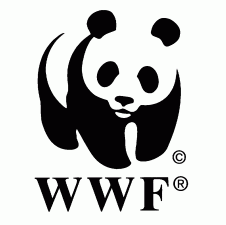
 LAB: The report (http://www.iadb.org/en/news/webstories/2012-06-05/latin-america-and-the-caribbean-global-warming,10011.html) says that, while Latin America and the Caribbean only contribute 11% to global emissions, the region is particularly vulnerable to the effect of global warming. Could you explain why it is so vulnerable?
LAB: The report (http://www.iadb.org/en/news/webstories/2012-06-05/latin-america-and-the-caribbean-global-warming,10011.html) says that, while Latin America and the Caribbean only contribute 11% to global emissions, the region is particularly vulnerable to the effect of global warming. Could you explain why it is so vulnerable?
MP: The Latin America and the Caribbean (LAC) region is highly vulnerable to climate change because projected climate impacts (through extreme events and long-term changes) could deeply affect key economic sectors of the region (e.g. agriculture), regions (e.g. coastal zones) and portions of the population (e.g. those who live in areas more prone to flooding). The concern is that climate impacts can compromise activities directly (e.g. the ability of crops to grow under new climatic conditions), degrade ecosystems and ecosystem services (upon which key economic sector and the livelihoods of millions of people in the region depend; e.g. through the retreat of mountain glaciers) and destroy physical infrastructure (through extreme events like hurricanes). The combination of these effects could be highly significant for the region.
LAB: The report says that the region faces economic damages of $100bn by 2050 from the impact of global warming. It is likely that poor populations — campesino families, indigenous people, riverine communities — will bear the brunt of the damages. This clearly contravenes basic social justice, as they have done nothing to cause the problem. What can be done to help them?
MP: Low income communities are already more vulnerable to begin with, because they often live in areas that may be more prone to damage from extreme events and they lack access to timely information, resources and support to reduce their vulnerability and recover from events when they do happen. The increase in frequency and/or intensity of extreme events and long-term climate changes runs the risk of making this vulnerability much worse. Given this, what is critical is that governments, the private sector and civil society organizations be proactive in our work with those at risk to reduce their vulnerability to the impacts of climate change. This means, first of all, understanding how climate change could impact them – and conducting this assessment to define how poor populations are vulnerable and to what degree, how and why. Secondly, it means developing the most appropriate adaptation actions with them as well. Some actions can be taken locally (e.g. choosing varieties of crops that are more resistant to drought), while others need to be taken at higher levels (e.g. setting up weather stations to monitor key variables; setting up insurance programs to protect farmers against crop losses).
LAB: A recent IEA (International Energy Agency) report said that it was virtually impossible now to prevent global warming of 2C and that the world was well on the way to global warming of 6C. Your report is talking of global warming of 2C. Have you any idea what would be the impact of 6C warming on the region? Would large swathes of the region become uninhabitable?
MP: We do not yet know what the impacts of 6C warming would be in Latin America and the Caribbean, but our main concern is that such a magnitude of global warming would change biophysical systems as we know them globally, and in LAC specifically, with dramatic consequences for all.
LAB: The world seems to be sleepwalking towards catastrophe. What can organisations like WWF do to prevent this catastrophe?
MP: There are key actions that need to be taken, including: (1) A global agreement with goals regarding GHG emissions reductions and actions to address the impacts of climate change that are commensurate with the global challenge that we face; (2) leadership by national governments to address these issues (emission reductions and climate adaptation) within their own countries; (3) work at sub-national and local scales to show that GHG reductions and actions to reduce vulnerability to climate change can be taken and can make a difference. This will ultimately affect what WWF believes is central to all of these discussions: access to food, water and energy for all, and the dependency on natural ecosystems to achieve this sustainably. WWF is advocating strongly for this at the international level, and working with national governments and civil society to show how these challenges can be tackled through appropriate policies and sound practices on the ground.

